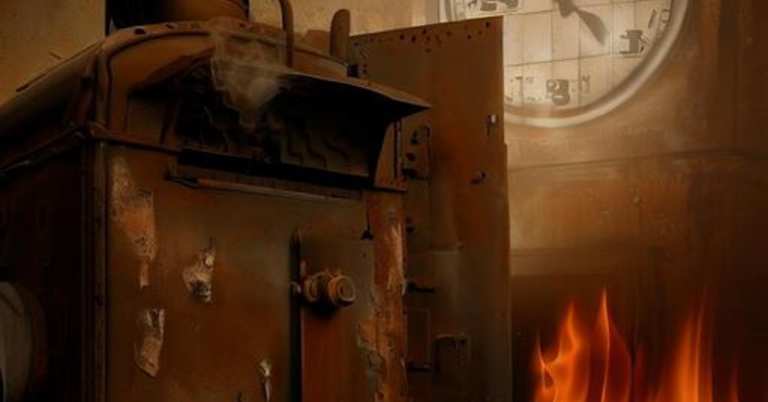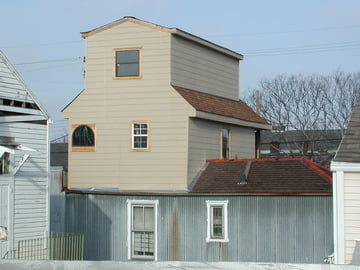A QUICK GLANCE…
Concrete homes have a remarkable lifespan and can last for several generations, often surpassing the longevity of other conventional housing materials. With proper construction techniques, regular maintenance, and a suitable climate, concrete homes can endure for hundreds of years. The inherent durability of concrete, its resistance to fire, pests, and extreme weather conditions, along with its low-maintenance requirements, contribute to its longevity, making it an excellent choice for long-lasting housing solutions.

As homeowners, we all want our homes to last as long as possible. However, the materials used in construction play a significant role in determining the lifespan of a home.
One material that has gained popularity in recent years due to its durability is concrete. In this article, we will explore the expected lifespan of concrete homes and factors that impact their longevity.
Concrete homes offer several benefits, including resistance to fire, moisture, and pests. They are also energy-efficient, which can result in lower utility bills. Additionally, concrete homes require less maintenance compared to traditional wood-framed homes, which can save homeowners time and money in the long run.
However, despite these advantages, it’s important to understand the factors that can impact the lifespan of a concrete home and how to properly maintain it to ensure it lasts as long as possible.
The Benefits of Concrete Homes
You’ll love how sturdy and low-maintenance your new concrete home is, giving you peace of mind for years to come. Unlike traditional wood-framed homes that are prone to rot, pests, and fire, concrete homes are highly resistant to these hazards. This means you’ll save money on costly repairs and replacements, and your home will retain its value for longer.
In addition to its durability, a concrete home offers many other benefits. One of the most significant advantages is energy efficiency. Concrete is a natural insulator, which means it keeps your home warm in the winter and cool in the summer. This can lead to significant savings on your energy bills over time, making a concrete home a smart investment.
Finally, concrete homes offer design flexibility. Whether you prefer a traditional or modern style, concrete can be molded into any shape or size. You can choose from a variety of finishes, such as stucco, brick, or stone, to create a unique look that complements your personal taste.
With a concrete home, you’ll have the freedom to express your creativity while enjoying all the benefits of a strong and long-lasting structure.
Factors that Impact the Longevity of Concrete Homes
Factors affecting the lifespan of a concrete residence include the quality of materials and construction, weather conditions, and maintenance practices.
Firstly, building codes play a crucial role in ensuring that the concrete structure is built to last. Compliance with building codes helps prevent structural issues and other problems that could lead to the premature degradation of the home. Therefore, it’s essential to ensure that the builder follows the local building codes and that the materials used meet the necessary standards.
Secondly, climate conditions can impact the longevity of a concrete home. Extreme weather conditions such as high winds, heavy rainfall, and temperature changes can cause damage to the concrete structure. For instance, water damage can weaken the foundation of the home, while temperature changes can cause cracks in the concrete.
Therefore, it is vital to consider the climate conditions of the area where the home is being built and take the necessary precautions to protect the home from weather-related damage.
Lastly, maintenance practices can determine how long a concrete home lasts. Regular maintenance, such as cleaning gutters, checking for water leaks, and inspecting the foundation, can help to prevent serious problems from developing. Neglecting maintenance can lead to significant structural issues and, in some cases, costly repairs.
Therefore, it is crucial to maintain the home regularly to ensure that it lasts for many years to come.
Overall, factors such as building codes, climate conditions, and maintenance practices play a significant role in determining the lifespan of a concrete home. It’s vital to consider these factors during the construction process and maintain the home to ensure that it lasts for many years. With proper attention and care, a concrete home can last for generations.
Expected Lifespan of Concrete Homes
It’s important to know how many years you can expect your sturdy concrete abode to stand strong, giving you peace of mind and a sense of security for your family’s future. Concrete homes are known for their durability and strength, but their lifespan can vary depending on several factors, including construction techniques and environmental impact.
Generally, a well-built concrete home can last for over a hundred years or more. This is because concrete is a highly durable material that can withstand harsh weather conditions, fire, and pests. However, the lifespan of a concrete home can be affected by several factors, such as the quality of the construction materials, the skill of the builders, and the maintenance of the home over time.
In addition, the environmental impact on a concrete home can also affect its lifespan. Exposure to harsh elements, such as saltwater or acid rain, can cause concrete to deteriorate faster.
However, with proper maintenance and repairs, a concrete home can continue to stand strong for many years to come. So, if you’re considering building a concrete home, make sure to choose a reputable builder, use high-quality construction materials, and take good care of your home to ensure it lasts for generations.
Maintenance Tips for Concrete Homes
To keep your strong and durable concrete abode standing for generations, take care of it with regular maintenance and these helpful tips.
One of the most important things to do is keep your concrete home clean. Use gentle cleaning techniques to avoid damaging the surface. Avoid using harsh chemicals or power washing as they can cause the concrete to wear away. A simple mixture of water and mild detergent or a specialized cleaner made for concrete should do the trick.
Another important aspect of maintaining your concrete home is making sure it is properly waterproofed. Moisture can seep into the concrete and cause it to crack or crumble over time. There are several waterproofing solutions available, including coatings and sealants. Consider hiring a professional to apply these products for the best results.
Be sure to also check for any cracks or damage to the foundation and repair them promptly to prevent water from seeping in.
Regular inspections and upkeep are crucial to the longevity of your concrete home. Check for any signs of wear and tear, such as cracks or uneven surfaces, and address them promptly. It’s also important to keep the surrounding landscape in good condition. Trim back any trees or shrubs that could potentially cause damage to the home’s foundation.
With proper maintenance, your concrete home can last for many years to come.
Future of Concrete Homes
If you’re looking to invest in a home that will stand the test of time and offer sustainable benefits, you might want to consider the future of building with concrete.
Concrete homes have been around for centuries, but the future of this building material looks even brighter due to the advancements in sustainability and innovation.
Here are four reasons why concrete homes will continue to be a popular choice in the future:
- Energy Efficiency: Concrete homes are known for their energy efficiency, which can lead to lower utility bills and a smaller carbon footprint.
- Durability: Concrete homes can withstand extreme weather conditions, such as hurricanes and earthquakes, making them a safe and reliable option.
- Design Flexibility: With new technologies and techniques, concrete homes can be designed in a variety of styles and sizes to fit any taste or need.
- Environmental Benefits: Concrete is a sustainable building material that can be made from recycled materials, reducing waste and promoting eco-friendly construction.
As we look towards the future of building with concrete, we can expect to see even more sustainable and innovative options. For example, researchers are currently exploring the use of biomimicry in concrete production, which would allow for the creation of stronger and more sustainable concrete structures.
With these advancements, concrete homes will continue to be a popular and reliable option for homeowners seeking a sustainable and long-lasting investment.
Conclusion
In conclusion, concrete homes offer numerous benefits, including durability, energy efficiency, and resistance to natural disasters.
While the lifespan of a concrete home can vary based on factors such as location, climate, and maintenance, they’re generally expected to last for several decades if not centuries.
To ensure the longevity of a concrete home, it’s important to properly maintain and repair any damage or wear and tear.
As technology continues to advance, the future of concrete homes looks promising with the development of even more sustainable and innovative building materials.




